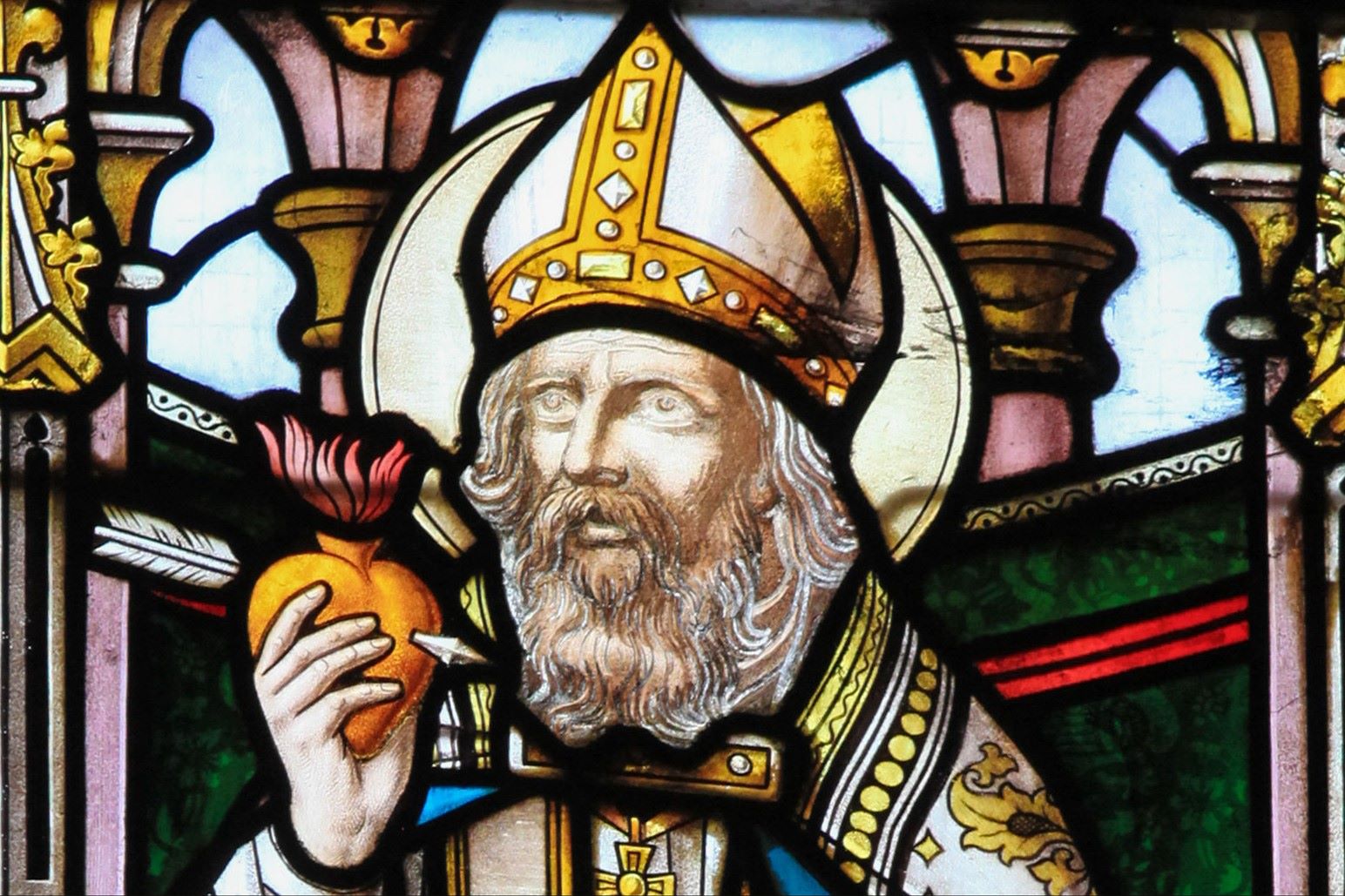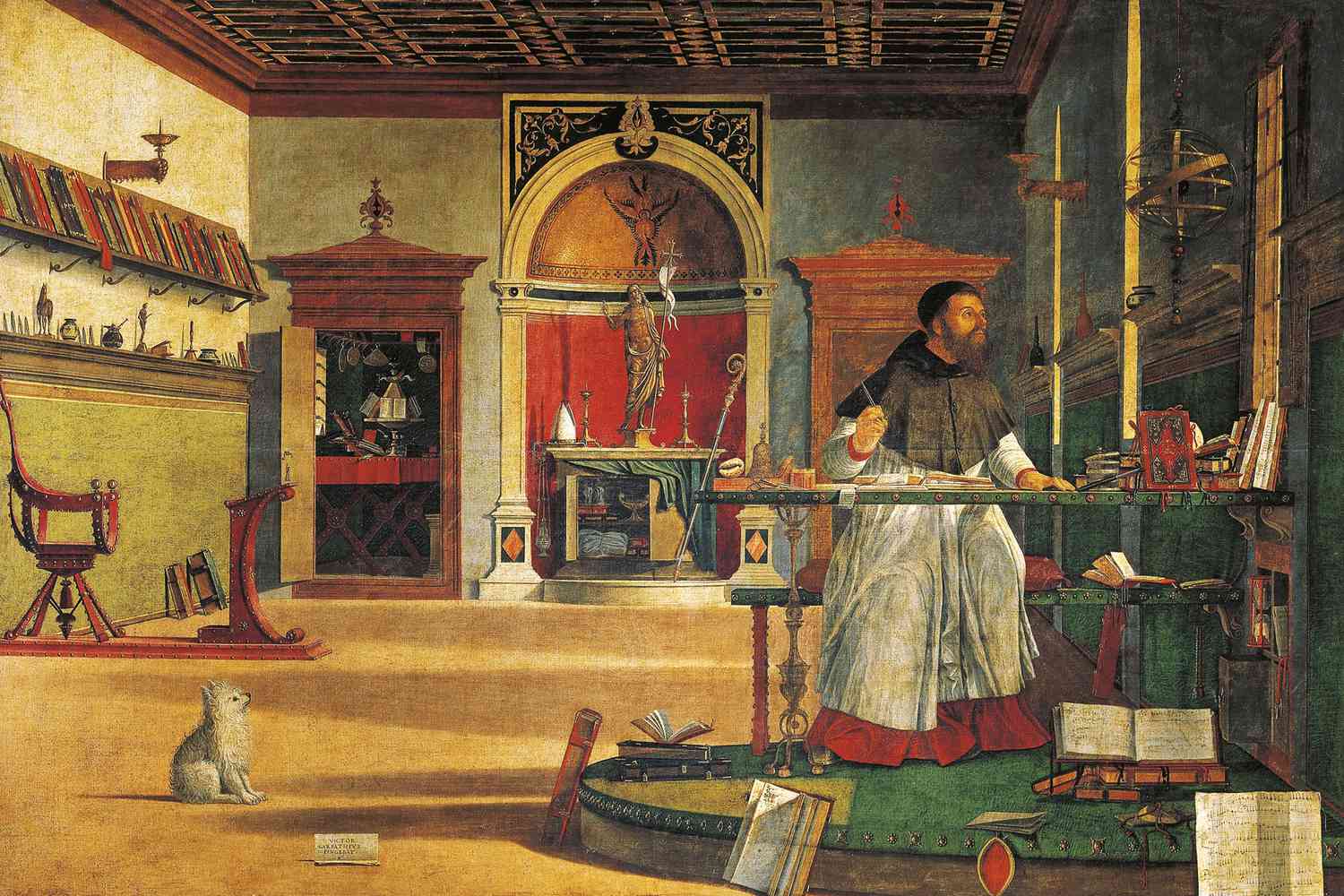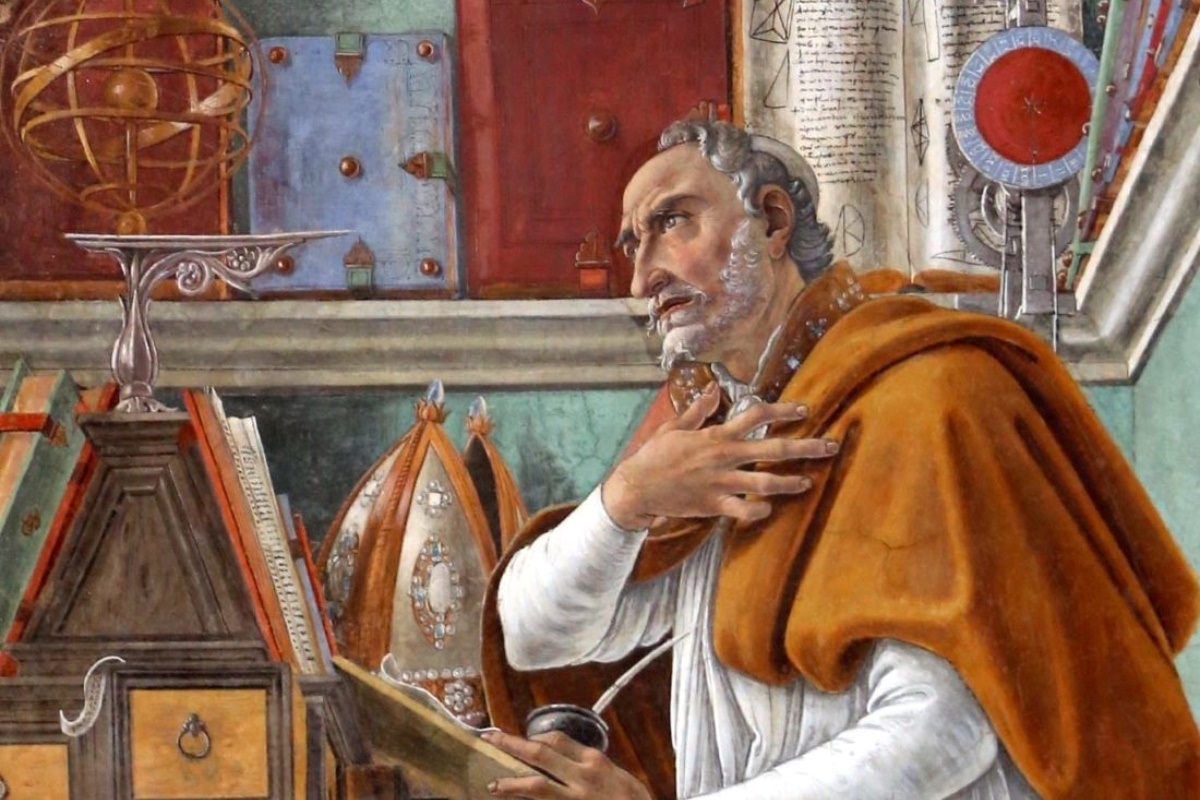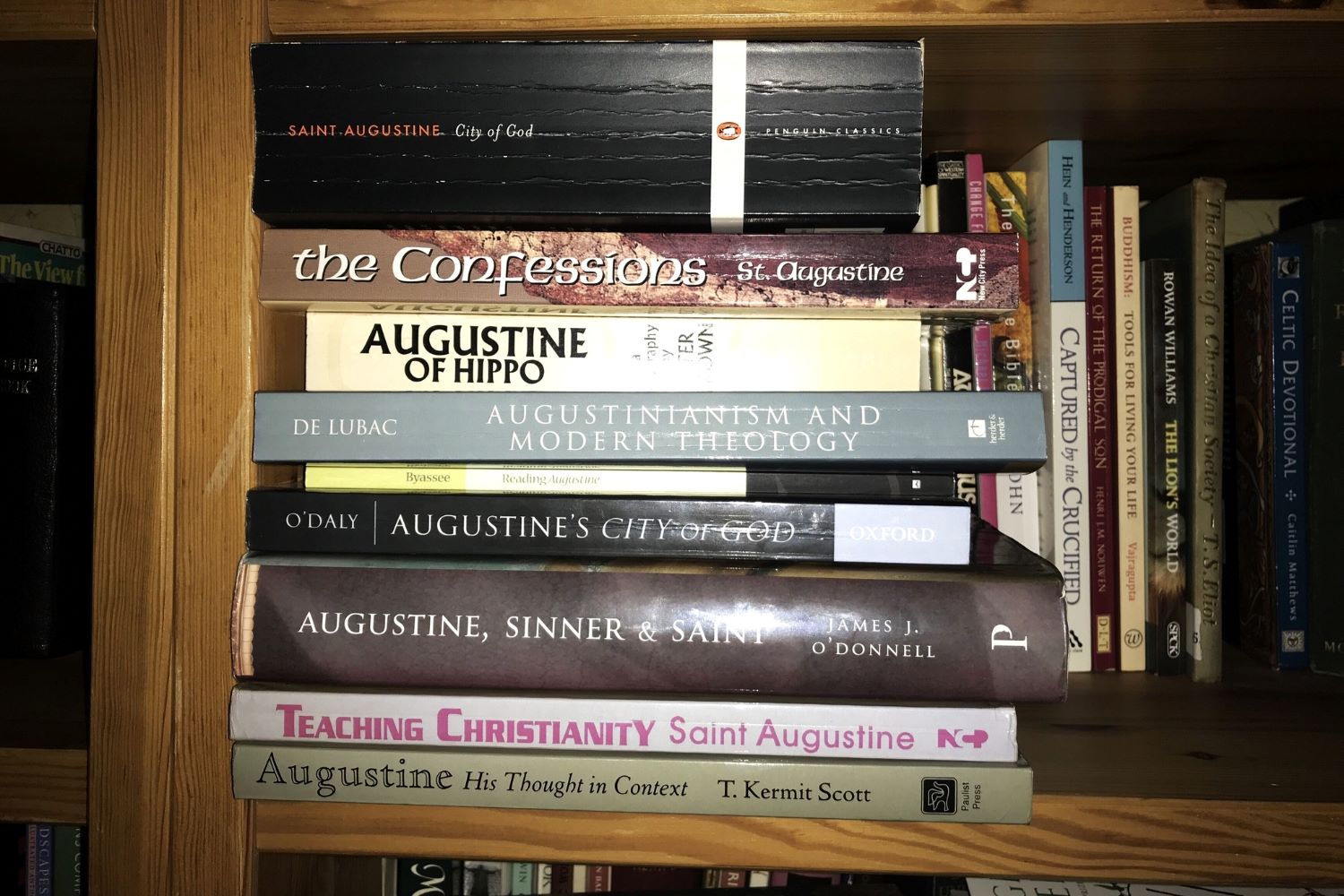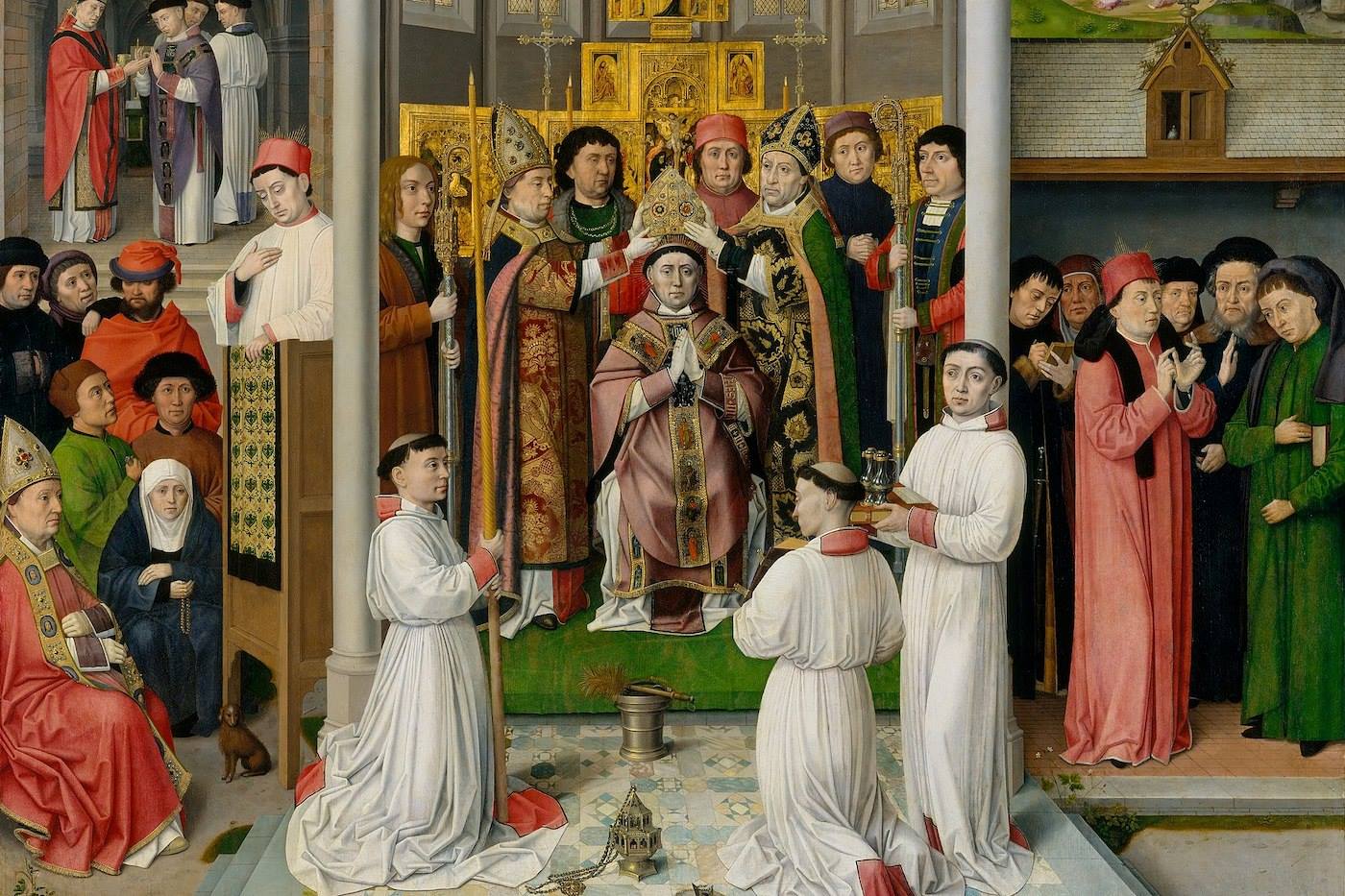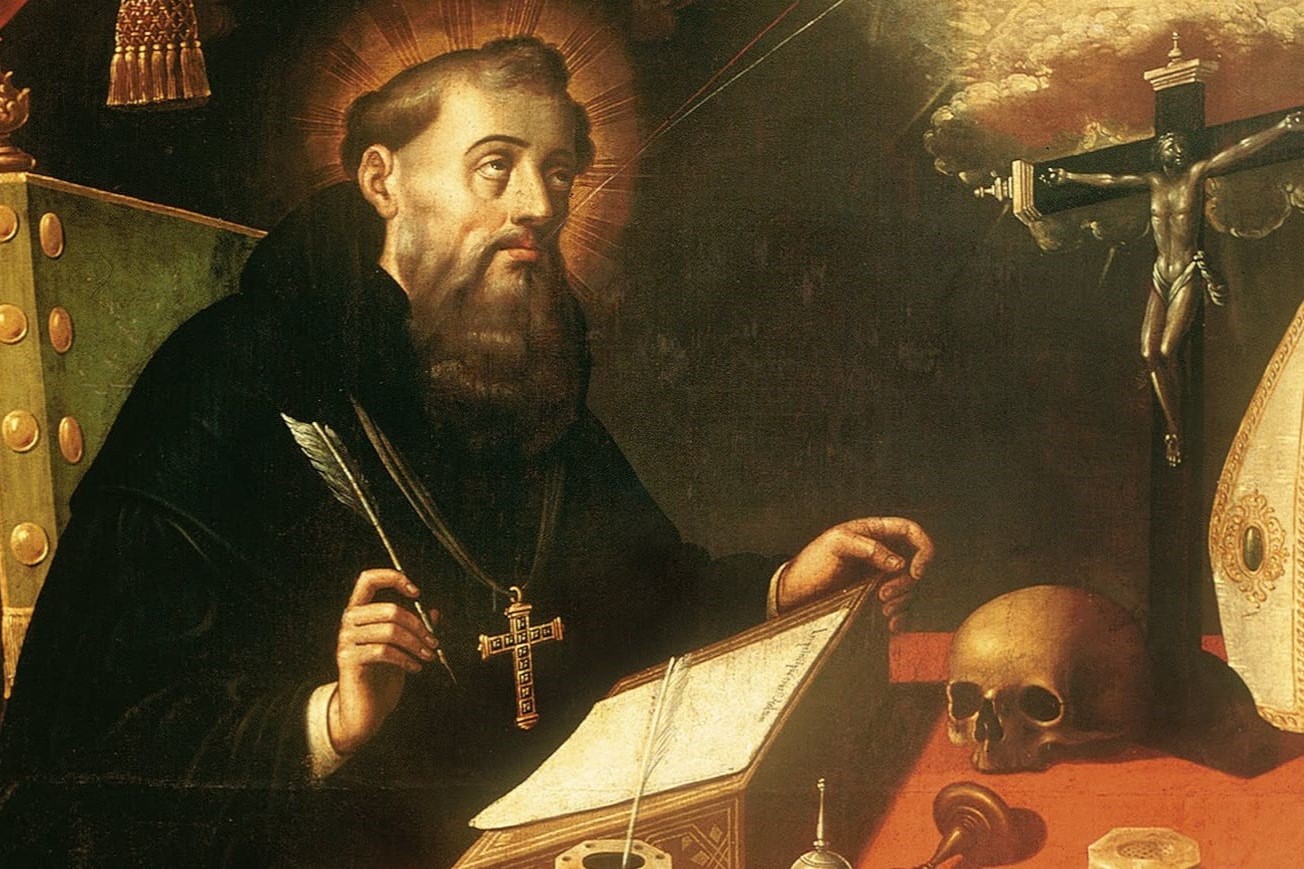Home>Theology and Spirituality>What Did Augustine Teach About Ethics What Were His Most Significant Ethical Teachings


Theology and Spirituality
What Did Augustine Teach About Ethics What Were His Most Significant Ethical Teachings
Published: February 10, 2024
Ericka Andersen, an editor at Christian.net, expertly merges digital strategy with content creation, focusing on faith and societal issues. Her communication skills enhance the platform's engaging narratives, fostering meaningful dialogue on belief's impact on society.
Discover Augustine's most significant ethical teachings and insights on theology and spirituality in this comprehensive guide to his ethical philosophy. Explore the impact of Augustine's teachings on ethics and spirituality.
(Many of the links in this article redirect to a specific reviewed product. Your purchase of these products through affiliate links helps to generate commission for Christian.net, at no extra cost. Learn more)
Table of Contents
Introduction
Augustine of Hippo, also known as Saint Augustine, was a prominent theologian and philosopher whose teachings have profoundly influenced Christian thought and Western philosophy. Born in 354 AD in Roman Africa, Augustine's intellectual contributions continue to shape ethical discourse and spiritual contemplation.
Throughout his life, Augustine grappled with profound questions about the nature of ethics, the pursuit of the good life, and the principles of love and justice. His writings, particularly "Confessions" and "The City of God," remain foundational texts in the study of theology and philosophy.
As we delve into Augustine's ethical teachings, it is essential to understand the historical and cultural context in which he lived. The Roman Empire was undergoing a period of profound transformation, and Augustine's experiences during this era deeply influenced his ethical perspectives. His journey from a life of youthful indulgence and skepticism to his eventual conversion to Christianity provides a rich backdrop for exploring his ethical insights.
In this article, we will explore Augustine's views on the nature of ethics, his concept of the good life, his teachings on love and justice, and his enduring influence on Western ethical thought. By delving into Augustine's profound reflections, we can glean timeless wisdom that continues to resonate with individuals seeking to navigate the complexities of moral decision-making and the pursuit of a virtuous existence.
Augustine's View on the Nature of Ethics
Augustine's view on the nature of ethics is deeply rooted in his theological and philosophical reflections. Central to his understanding of ethics is the concept of the human will and its orientation toward the ultimate good. Augustine grappled with the inherent tension between the fallen nature of humanity, as articulated in his doctrine of original sin, and the yearning for moral goodness and spiritual fulfillment.
At the core of Augustine's ethical framework is the recognition of the human capacity for both good and evil. He emphasized the profound impact of free will in shaping moral choices, acknowledging the inherent struggle between the desires of the flesh and the pursuit of righteousness. Augustine's introspective exploration of his own moral failings, as vividly depicted in his autobiographical work "Confessions," underscores his profound awareness of the complexities of ethical decision-making.
Furthermore, Augustine's engagement with Neoplatonic philosophy informed his ethical outlook. He contemplated the transcendent realm of the divine as the ultimate source of moral truth and goodness. For Augustine, the pursuit of ethical living was intricately linked to the ascent toward God, wherein the human soul seeks alignment with the divine will.
In his seminal work "The City of God," Augustine grappled with the tension between earthly politics and the eternal city of God. This nuanced exploration of the human condition and the moral dilemmas inherent in societal structures underscored Augustine's profound ethical insights. He challenged prevailing notions of moral relativism, advocating for an ethical framework grounded in the eternal truths of divine law.
Augustine's view on the nature of ethics resonates with the enduring tension between human frailty and the pursuit of moral excellence. His profound reflections continue to inspire ethical inquiry and introspection, inviting individuals to contemplate the complexities of human nature and the quest for virtuous living. Through his theological and philosophical contributions, Augustine's ethical legacy endures as a timeless source of wisdom and contemplation.
Augustine's Concept of the Good Life
Augustine's concept of the good life is deeply rooted in his theological and philosophical reflections, offering profound insights into the pursuit of spiritual fulfillment and moral excellence. Central to Augustine's understanding of the good life is the notion of alignment with the divine will and the cultivation of virtuous living.
At the heart of Augustine's ethical framework is the recognition of the human longing for ultimate fulfillment. He contemplates the restless nature of the human heart, emphasizing that true contentment can only be found in God. Augustine's own spiritual journey, marked by a profound sense of yearning and eventual conversion to Christianity, underscores his belief in the transformative power of embracing the divine as the ultimate source of fulfillment.
Furthermore, Augustine's concept of the good life is intricately linked to the pursuit of inner harmony and moral rectitude. He emphasizes the cultivation of virtues such as humility, love, and compassion as essential components of the good life. Augustine's ethical teachings underscore the transformative power of aligning one's will with the divine, thereby fostering a life marked by moral integrity and spiritual richness.
In his exploration of the human condition, Augustine grapples with the inherent tension between earthly desires and the pursuit of transcendent truth. He challenges the notion that material wealth or temporal pleasures can offer lasting fulfillment, advocating instead for a life centered on the pursuit of spiritual growth and moral excellence. Augustine's concept of the good life invites individuals to transcend the fleeting allure of worldly pursuits and embrace a deeper, more profound understanding of fulfillment rooted in spiritual alignment and moral integrity.
Moreover, Augustine's teachings on the good life resonate with the enduring quest for meaning and purpose. He invites individuals to contemplate the transient nature of earthly existence and to seek enduring significance in the pursuit of moral goodness and spiritual enrichment. Augustine's concept of the good life serves as a timeless beacon, guiding individuals toward a profound understanding of fulfillment rooted in the pursuit of virtue and alignment with the divine will.
In essence, Augustine's concept of the good life offers a profound vision of spiritual fulfillment and moral excellence, inviting individuals to transcend the ephemeral trappings of the world and embrace a life marked by inner harmony, virtuous living, and alignment with the divine. His enduring insights continue to inspire seekers of wisdom and truth, illuminating the path toward a life of profound significance and spiritual richness.
Augustine's Teachings on Love and Justice
Augustine's teachings on love and justice offer profound insights into the ethical dimensions of human relationships and societal harmony. Central to his ethical framework is the inseparable connection between love and justice, both of which are rooted in the divine order and the moral fabric of existence.
At the core of Augustine's teachings is the primacy of love as the guiding principle of human conduct. He expounds on the transformative power of love, emphasizing its capacity to transcend individual interests and foster communal well-being. Augustine's reflections on love extend beyond mere sentimental affection, encompassing a profound sense of benevolence and compassion that transcends the self. His teachings underscore the ethical imperative of cultivating love as a foundational virtue, fostering empathy, and nurturing harmonious relationships within the human community.
Furthermore, Augustine's ethical insights on justice are deeply intertwined with his understanding of divine righteousness. He contends that true justice emanates from the eternal order established by God, transcending human constructs and societal norms. Augustine challenges prevailing notions of justice rooted solely in human legislation, advocating instead for a higher ethical standard grounded in the divine law. His teachings on justice emphasize the moral obligation to uphold fairness, equity, and the dignity of every individual, reflecting the transcendent principles of divine righteousness.
Moreover, Augustine's ethical reflections on love and justice converge in his profound exploration of the interconnectedness between the two virtues. He contends that genuine justice is inseparable from love, as it necessitates a deep sense of compassion and empathy toward others. Augustine's teachings underscore the ethical imperative of enacting justice with a spirit of love, ensuring that fairness and equity are guided by benevolence and a genuine concern for the well-being of all.
In essence, Augustine's teachings on love and justice resonate with timeless ethical principles that continue to illuminate the complexities of human relationships and societal harmony. His profound insights invite individuals to cultivate love as a transformative force and to uphold justice as an expression of divine righteousness. Through his ethical teachings, Augustine offers a compelling vision of a society guided by love and justice, wherein the inherent dignity of every individual is upheld, and communal well-being is nurtured through the ethical imperative of love and justice.
Augustine's Influence on Western Ethics
Augustine of Hippo's profound influence on Western ethics reverberates through centuries, shaping the moral and philosophical landscape of the Western intellectual tradition. His enduring legacy is evident in the profound impact of his ethical teachings on subsequent generations of theologians, philosophers, and scholars, permeating the fabric of Western ethical thought.
Central to Augustine's influence on Western ethics is his profound articulation of the human condition and the moral dilemmas inherent in the quest for virtuous living. His introspective exploration of the complexities of human nature and the inherent tension between earthly desires and spiritual fulfillment continues to resonate with ethical inquiries in Western philosophical discourse. Augustine's nuanced understanding of the human will, moral agency, and the pursuit of the ultimate good has left an indelible mark on Western ethical thought, fostering ongoing contemplation of the intricacies of moral decision-making and the pursuit of moral excellence.
Furthermore, Augustine's ethical insights have significantly shaped the Christian ethical tradition, offering enduring principles that continue to inform moral reasoning and ethical conduct within Christian communities. His profound reflections on love, justice, and the pursuit of the good life have provided a moral compass for generations of Christian ethicists, guiding individuals in navigating the complexities of moral dilemmas and ethical decision-making within the framework of Christian faith.
Moreover, Augustine's influence extends beyond the confines of Christian ethics, permeating the broader landscape of Western philosophical inquiry. His engagement with the tension between the earthly city and the city of God, as articulated in his seminal work "The City of God," has sparked profound reflections on the relationship between politics, morality, and the transcendent realm. Augustine's ethical legacy continues to inspire interdisciplinary dialogue, fostering ongoing explorations of the ethical dimensions of societal structures, governance, and the pursuit of communal well-being within the Western philosophical tradition.
In essence, Augustine's influence on Western ethics transcends temporal and cultural boundaries, offering enduring insights that continue to shape ethical discourse and moral contemplation. His profound articulation of the human condition, the pursuit of the good life, and the ethical imperatives of love and justice resonates with individuals seeking to navigate the complexities of moral decision-making and the pursuit of a virtuous existence within the rich tapestry of Western ethical thought.

